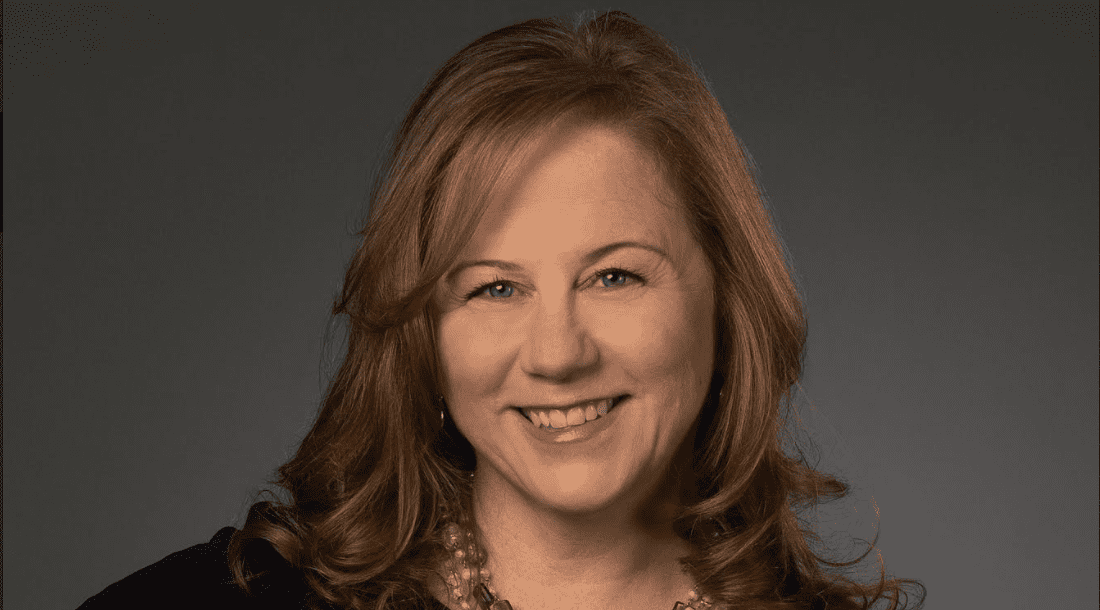Pictured: Jackie King, Executive Director, International Business, at Ibec
Jackie King is Executive Director, International Business, at Ibec. She spoke to Business & Finance ahead of Ibec’s upcoming webinar, ‘Global Leadership in Action – Achieving an Equal Future by Getting Serious About Gender Equity,’ to discuss gender disparity in the workplace.
(The following is an extract of an interview set to appear in the upcoming edition of Business & Finance magazine: Volume 58, no. 2).
Jackie King is Executive Director, International Business, at Ibec. She was previously Chief Operating Officer at the Canadian Chamber of Commerce and Senior Vice President and General Manager of the Ottawa, Canada office of a leading international public affairs and strategic communications consulting firm. Ms King’s experience includes leading and managing multiple complex national and international client files, and counselling officials, boards, and senior executives in almost every sector and industry in the Canadian economy on national and international issues and opportunities.
Ms King spoke to Business & Finance ahead of Ibec’s upcoming webinar, ‘Global Leadership in Action – Achieving an Equal Future by Getting Serious About Gender Equity,’ to discuss gender inequality in business.
Barriers
It is known that women face barriers in work and at home. These include higher performance standards, harsher judgements for mistakes, penalties for mothers taking advantage of flexible work options, to name but a few.
“More generally,” Ms King notes, “gender segregation is one of the major barriers to achieving gender balance.”
She continues: “There is segregation between women and men both vertically and horizontally in an organisation, and there is segregation between genders who are over-represented in one certain role or occupation. So, women dominate certain occupations like education, health and caring professions, whereas men dominate technology and engineering. So there is a wealth of research which attributes segregation with limiting employment choices, access to higher-level jobs and the undervaluation of the female-dominated occupations.
“The roots of this lie in the education itself. It’s not just in the workplace. It goes back to how we’re educating our children and how we are developing curriculum and all of those kinds of things, and the traditional ‘this is women’s work, this is men’s work,’ and directing our kids accordingly. While girls tend to outperform boys in education, they are less likely to choose the subjects that lead them to being concentrated in employment sectors offering narrower scope for higher earnings later in life. This is reinforced not just by the school system, by teachers, but by society and parents at times.”
The Impact of the Pandemic
Ms King notes that the COVID-19 pandemic has had a substantial impact on gender disparity. COVID-19 has accentuated long-standing gender imbalances. “Pre-pandemic, there were bright spots showing forward momentum and progress with lasting impact” says Ms King. “Mercer did some research on the rates of hiring and promoting and retaining women, and they were, at that time, comparable to the rates of men, so there was some progress being made.”
She continues: “The World Economic Forum in 2020, in their report – and this would have come out in early 2020 – they estimated that, with the current pace and the way things were, it would take 99.5 years to achieve global gender parity. That means it would take until almost 2120 for governments and businesses to be equally led by men and women. A year later, with the pandemic, just to show you the data […] According the the World Economic Forum’s latest report, which came out in March, as the impact of the COVID-19 pandemic continues to be felt, it has increased from taking 99.5 years to achieving it in 135.6 years.”
The data suggest that mothers, senior women, and black women have been disproportionately affected by the COVID-19 pandemic, with many struggling financially.
Childcare
Ms King notes that, while men certainly help with housework and do provide care-giving roles, “research shows it is falling on the shoulders of women predominantly.”
She elaborates: “Women face inequalities at work, and also face those inequalities at home. Around the world women do three times as much unpaid care work as men. This is not just anecdotal or perception, decades of research show women do significantly more housework and childcare than men do. This is so pronounced that women who are employed full-time are often said to be working a double shift. During COVID-19, theoretically, for lots of families, working from home might have brought greater equality to the distribution of chores. Unfortunately not, according to the European Commission, which has reported that the COVID-19 crisis has brought about little-to-no positive change in that area with women.”
Even frontline workers, Ms King notes, take on double duties. According to McKinsey, women spend, on average, 5 or more hours on house work than men.
Global Leadership in Action – Achieving an Equal Future by Getting Serious About Gender Equity
Ibec Global presents an interactive, frank, and modern discussion on what we collectively need to do to achieve goals for gender equality and to unlock massive financial, human and societal benefits. If equality is the goal, we need to shift to an equity agenda that ensures we are putting the right measures in place to actively correct the historical wrongs and systemic barriers that leave women and gender diverse people behind and provide them with the tools and support they need to thrive.
The event will feature international thought leaders who will deliver thought-provoking remarks on various topics, with a follow-up discussion after each topic among a panel of global business leaders and influencers.



